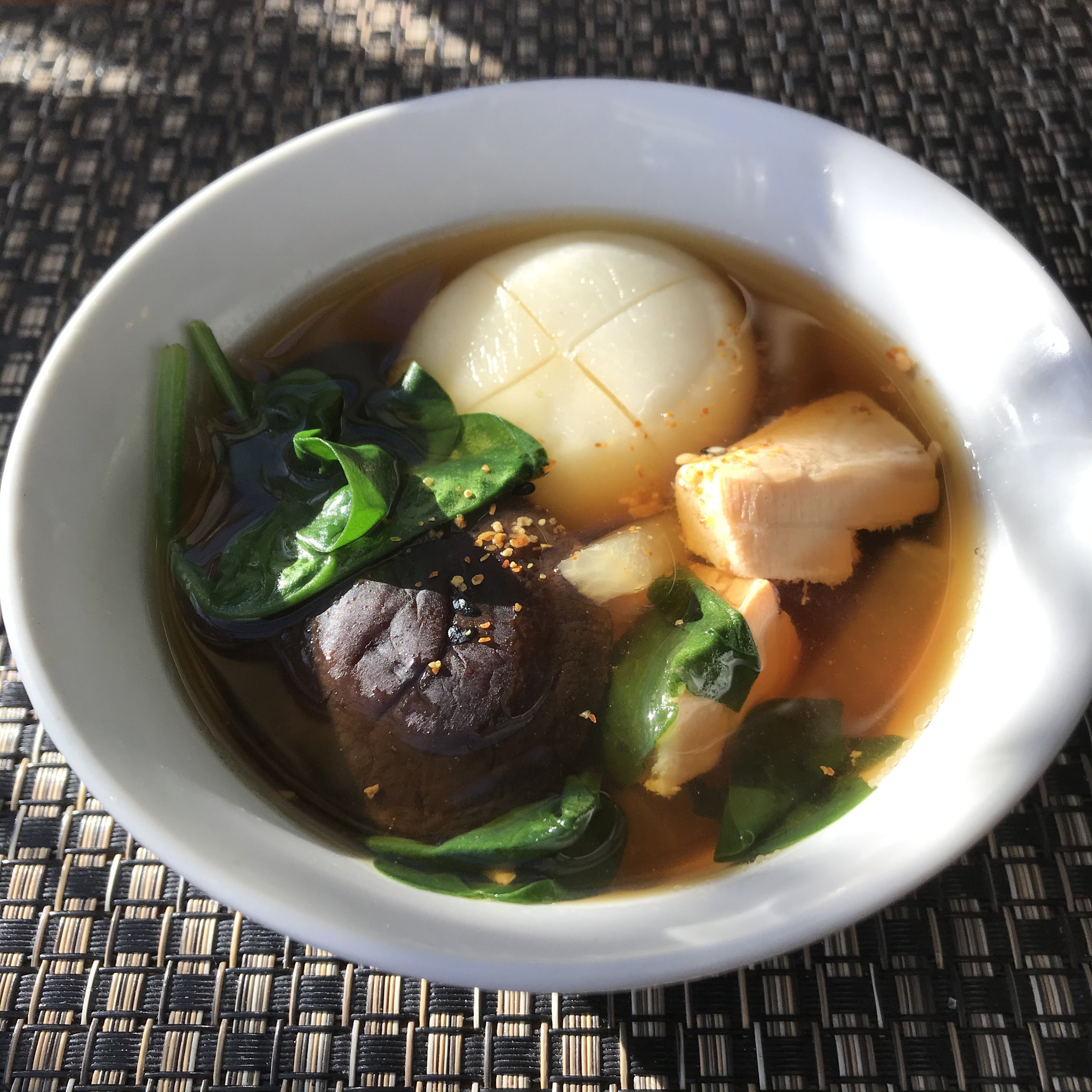Happy New Year!
お雑煮(おぞうに)o-zooni
Happy New Year!
Thank you very much for your continuous support toward my business.
We say, “Happy New Year” to wish someone to have a good year before and after the new year has arrived. If you try to Google translate “Happy New Year’ into Japanese, you probably see “Akemashite omedetoogozaimasu!” or “ Shinnen, omedetoogozaimasu’. However, we don’t say those greeting words until the year changes to the new year. Also, you can’t use “shinnen” and “akemashite” continuously as this “akeru” means “to end” and what is ending is the passing year, not the new year.
If you would like to wish someone to have a good year before the new year arrives, you can say, “Yoi o-toshi o o-mukaekudasai.’ or “Yoi toshi ni narimasuyooni.”
明(あ)けましておめでとうございます。
本年(ほんねん)もどうぞもどうぞよろしくお願(ねが)いいたします。
英語(えいご)では、良い年(よいとし)を祈(いの)って年(とし)が明(あ)ける前(まえ)にも明(あ)けてからもハッピーニューイヤーと言(い)います。ハッピーニューイヤーを日本語(にほんご)に訳(やく)すと、「明けましておめでとうございます」か「新年(しんねん)、おめでとうございます。」になりますが、これらは新年(しんねん)が来(き)てからいう挨拶(あいさつ)で、年(とし)が明(あ)けるまでは使(つか)いません。
年が明けるまでに言う場合には、通常(つうじょう)、「良(よ)いお年(とし)をお迎(むか)えください。」とか「良(よ)い年(とし)になりますように。」と言(い)います。
「明けましておめでとう」の意味(いみ)は、「明ける(あける)」は「終わる(おわる)」と言(い)う意味(いみ)で、一年(いちねん)を無事(ぶじ)に終(お)えることができ、新年(しんねん)を迎(むか)えることができて、おめでとうございますと言う意味です。
